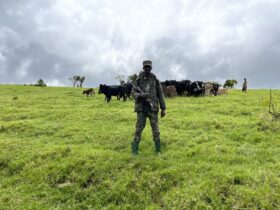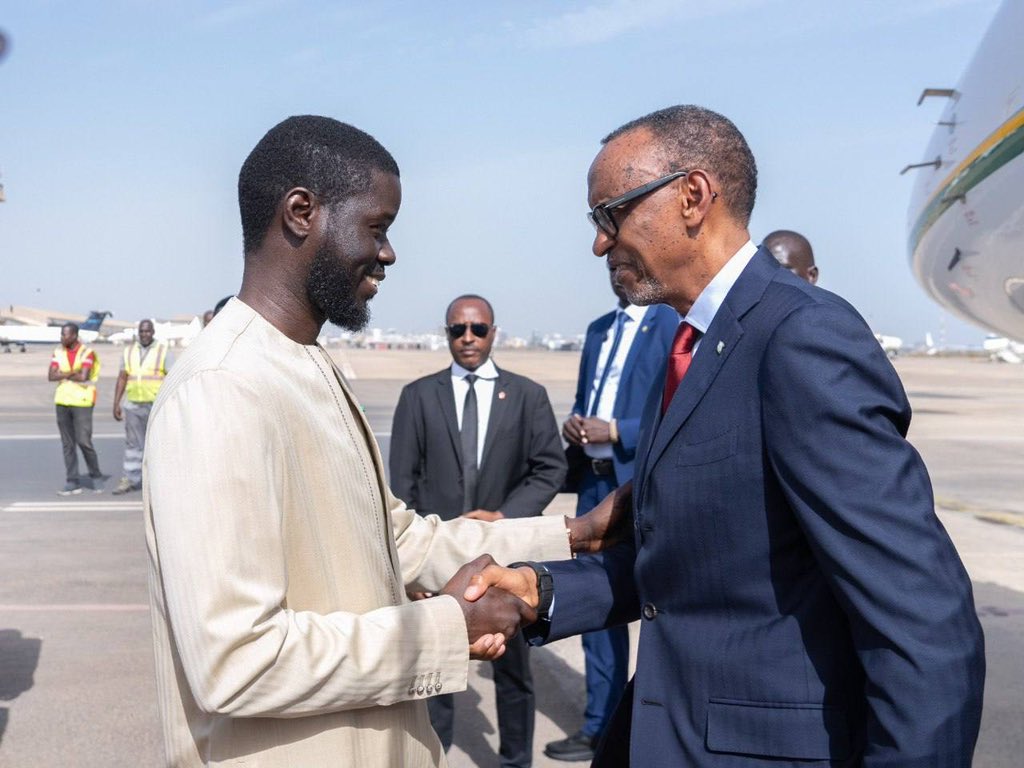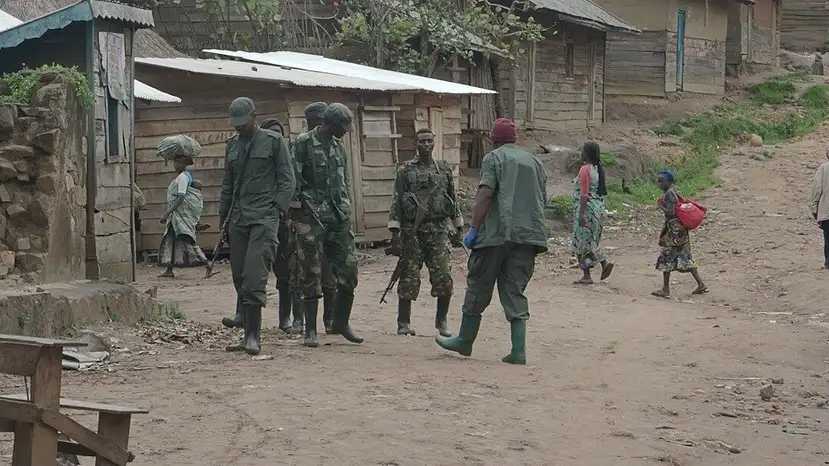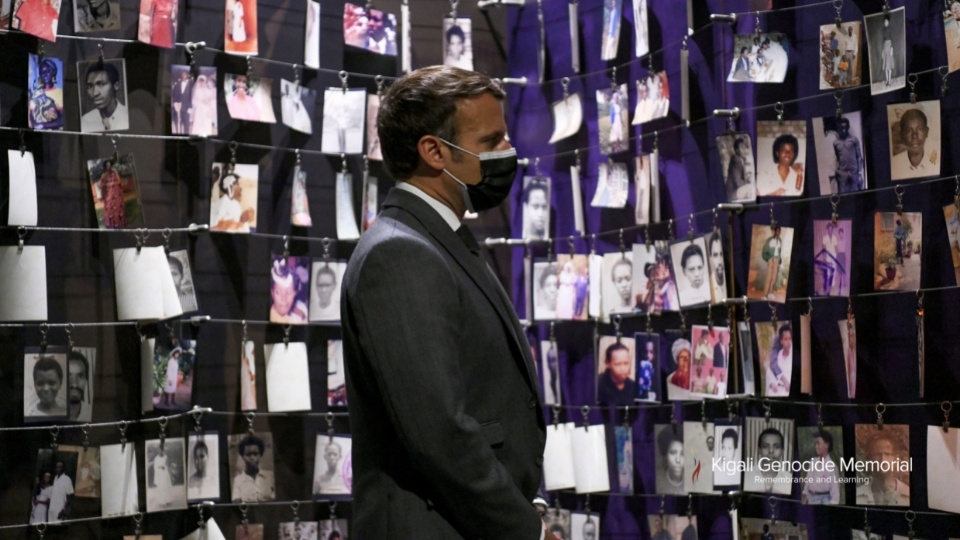“If we are convinced the other fellow can’t sing, we have only to call his song a ‘hellish row’ in order to justify our claim. Simply by applying a certain vocabulary one can easily turn Gods into Idols, Faces into grimaces, votive images into fetishes, discussions into palavers and distort the real object and matter of facts through bigotry and prejudice.” (Jahnheinz, Muntu)
As I watched the small clip of Susane Thompson – ‘How the Rwandan Genocide Changed My Life’ – link: https://www.youtube.com/watch?v=CBEUZXVJG8U I thought to myself; that is so dishonest in many ways, but coming from a University lecturer just leaves me speechless. ‘Don’t listen to the other person’, she pleaded, ‘listen to me instead; to only me’. Poor confused kids, revering their ‘knowledgeable’ lecturer, were being mislead.
No respectable university should allow their lecturer to do that to students. In my time at University, lecturers would never do that. They would say: ‘when you are doing research, it is like you are riding a bicycle, go on the left, go on the right, then find your balance’. They would even encourage students to challenge them, bring different perspectives that would contribute to the lecture and to the classroom. That’s what university is all about. They are trying to inspire leaders of tomorrow, who will see the world from many angles and analyze issues with different lenses. The last thing they want is to promote oxymoron, who follow what the lecturer, the writer or the politician says.
I remember John McCain on a campaign trail in the heat of the 2008 presidential elections, being told by a woman: ‘I read a book about Obama, he is an Arab!’ – and him responding: ‘No Madam, he’s a descent family man, one that I happen to have a difference of opinion with’.
John McCain did not win; he should have. He had intellectual respect and decency. On the other hand; Mitt Romney his Republican counterpart, referred to everyone who voted for Obama as victims and lazy people; I was not surprised he lost; he lacked the elegance and respect for people who had a different opinion to his.
Susane Thompson falls in the same category. Being a professor, she usurps her responsibility to educate by insulating her students from a whole world of opinions; much healthier and diversified opinions. That is bad enough. Now, to make blanket statements about a people , just because she has an audience; that is demagoguery.
Every once in a while, on our learning path, we come across lecturers with an agenda; that is fine. However, we expect to be given a chance to informed consent, before we espouse their agenda. They are not permitted to confine us to one worldview; an erroneous one.
Such affirmations would be harmless had they been uttered in a classroom for purposes of debate and scenario construction; they were not! The timing of their organising, in the build up to the twentieth commemoration of the Genocide against Tutsis, is simply evil.
Obviously, I have an opinion. By sharing it with you, I have a particular agenda; which is to exhort you to come to Rwanda. If you do, you will fall in love with it like I did; guaranteed! I doubt that your professor ever gets a Rwandan visa; so I bet the last time she was in Rwanda must have been a long time ago – unfortunately a visa is not a right, it is a privilege and even I wouldn’t give it to her; I was denied a visa to Switzerland once…
If you don’t come to Rwanda, try to find someone who has, and recently. In the aftermath of the genocide, there was nothing to like, people had died, others had killed, others were desperate, disgruntled, traumatized and angry; in other words, it was a perfect Africa’s Hollywood snapshot.
However the massive transformation of the last twenty years is just incredible! It cannot be explained in word; you have to come and see for yourself. Even if you have not been here immediately after the genocide, you must have seen ‘tears of the sun’ or ‘blood diamond’ and thus think of Africa. When you come to Rwanda, you get blown away. Because what you see, would be comparable to a film called ‘falling in love with Paris’ or ‘an afternoon in Casablanca’. But that is what Susan Thompson doesn’t want you to know. Because after you have come, you might never attend her lectures again. And she wouldn’t want you to, I mean, you would pick up every lie she makes and expose it.
For example, the fact that she claims that the RPF downed the plain of Habyarimana is not new, It has been said by a French writer Pierre Pean, who is an unrepentant genocide denier. He imagined a scenario where the whole genocide was a plot by the current ruling party – the RPF. Later a French judge Bruguière, based on the testimony of a former soldier, made indictments of Kagame and his associates.
Both events, it has been established, were ill-advised. The Rwandan soldier has since retracted his testimony, claimed that he had been promised asylum and money should he testify.
Based on those indictments, a Kagame associate was arrested in Germany. She requested to be transferred to France to face the Judge and her other accusers; the trial never took place; the docket of Judge Bruguière was empty. She was promptly released and now goes about her business, a free woman.
Soon after, Bruguière’s successor; Judge Trevidic, came on the ground – to Rwanda – to conduct his own investigation. He was accompanied by a ballistic expert, a sound engineer, and other experts. They concluded that the plane was not downed by the RPF but by Hutu extremists to use it as a trigger of the genocide.
Now in any story, there are conspiracy theories. The kind of: ‘No one ever set foot on the moon; ‘it is the CIA that bombed the World Trade Centre’, etc. These are outrageous, wacky, doctor strangelove bullshit and we all know it. It’s tempting to use them to crack a joke in a bar, and cause laughter all around. But no one should pull them in a university classroom!
Maybe another version will come up in the future on the plane downing, but the legal version, as of today is that of Judge Trevidic. I have lectured law at University myself. I believe that a lecturer of law, may not overlook a legal, official version, and instead, give to their students a version that is obsolete. It is like citing jurisprudence, by referring to a judgement that was overturned in appeal. In court that would be just dumb, but in a lecture, it is intellectual dishonesty. I bet she would never do that if she was speaking about any other western country.
Also, she claims that RPF sacrificed the Tutsis because they wanted to control power, she omits that the RPF was the only party, which had respected and complied with the power sharing agreement during the ceasefire negotiations, and that it was the other party; the defeated Habyarimana regime and his entourage whom were fiercely opposed to it.
Another thing is that she has managed to portray the government of Rwanda’s efficiency as a bad thing: ‘they are very good in diplomacy’, she says; ‘they have a very strong communication machine’; ‘they control power’, etc. But what’s wrong with that? What’s wrong with communicating one’s policies, promote one’s country? Who doesn’t control power, how much power, which power? What kind of University discussion is that?
Then she maintains that ‘the UN has systematically documented over six million Congolese and Rwandans that have been Killed by the RPF’ Oh boy, If only her nose could grow each time she popped a lie, she would have suffocated everyone in the room…
That is crazy. No report of the UN or any other source says that. Rwandan troupes are among the highest rated peacekeepers in the world, for their discipline and humanity. Today Rwanda contributes troupes both to the UN and the AU on two continents.
Besides, where does she get that information? Uppsala University – a serious university in Sweden, which has been conducting systematic research on the conflict in the DRC for many years, has concluded that it was impossible to tell how many people died in the DRC conflict, because: there was no baseline to start with. There have been massive displacements; only a small number of corps were found; etc. Furthermore, two of three experts conducting a demographic study at the request of the Europen Union had this to say: ‘Let us be clear here: although, according to our estimates, the conflicts in the DRC caused much less deaths than the alleged four million, their number is anyway an excess!’ Here’s the link: http://adrass.net/WordPress/wp-content/uploads/2010/09/Excess-Death-Toll-in-DRC-1998-2004-diffusion.pdf
The figure ‘4 or 5 Million’ was launched by an NGO – the International Rescue Committee (IRC), in a fundraising rally: that’s how it was recycled, without confirmation, and told over and over again by the likes of Human Rights Watch. Just like the ‘one woman is raped every second in South Africa’ another story, which is based on nothing, save from the comments of a policeman in Soweto, Johannesburg, who had receive three cases of rape in a day, and exclaimed: ‘do they rape them every second or what?’ – and there it went, recycled by sensationalists like this professor.
Just to be clear, in a Judgement on the invasion of Democratic Republic of Congo by Rwanda and Uganda, the International Court of Justice established that Rwanda’s invasion in Eastern DRC was justified. They explained that the presence of anti-Rwanda militias – made of former genocide perpetrators was a real threat to Rwanda’s security and territorial integrity, which they were justified to protect.
To conclude; I would like to say this: There are always many sides to a story. Beware of anyone who advises you to stick to their side. Also, I think Mrs Thompson has indeed been affected by what she saw during the genocide and thought – for her to get satisfaction, she should attract full, undivided and exclusive attention in telling its story. When others wanted to own and tell theirs, she felt scared that her limelight would fade as she died out in solitude. Hence the ‘don’t read anyone else, read me! me! me!’. This is a Rwandan story; I think it should just be fair for Rwandans to have a chance to tell it too. It is also a story of humanity, and I think people all over the world should have a right to tell it. Which is why we haven’t patented the story or sold licences.
Whatever I think of her writings – which I deeply disagree with, I can’t dare ask you to stop reading it, no one should! She might not have a visa to come to Rwanda again. That is a shame, because I think experiencing the transformation of Rwanda in the last twenty years can only do her good. It could be the beginning of a healing process. For now though, I wish he well…
Posted 31st March 2014
















Leave a Reply